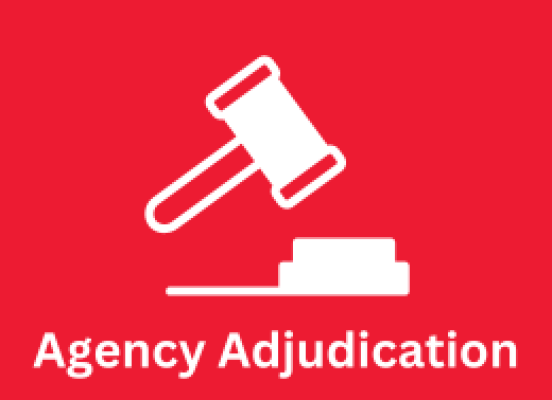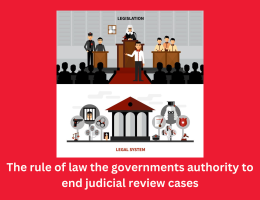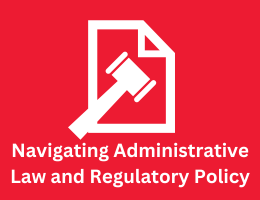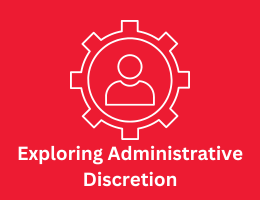
Agency Adjudication: Ensuring Fairness in Administrative Disputes
- By admin --
- Thursday, 07 Mar, 2024
Agency adjudication stands as a crucial aspect of administrative law, providing a forum for the resolution of disputes between administrative agencies and private parties. This essay explores the procedural requirements that govern agency adjudications, including hearings, evidentiary standards, and the rights of parties involved. By delving into these procedural aspects, we gain insight into how administrative agencies uphold fairness and due process in their adjudicatory proceedings.
Introduction to Agency Adjudication
Agency adjudication refers to the process by which administrative agencies resolve disputes between themselves and private parties, typically involving issues related to regulatory compliance, enforcement actions, or entitlements to benefits or licenses. Adjudication serves as a quasi-judicial function of administrative agencies, allowing them to apply legal principles and factual findings to specific cases or controversies.
The adjudicatory process is governed by procedural requirements that ensure fairness, transparency, and due process for all parties involved. These requirements encompass various aspects of adjudication, including the conduct of hearings, the presentation of evidence, and the protection of parties' rights. By adhering to these procedural safeguards, administrative agencies can uphold the integrity of their adjudicatory proceedings and promote public confidence in the administrative justice system.
Procedural Requirements for Agency Adjudications
Agency adjudications are subject to a set of procedural requirements designed to protect the rights of parties and ensure a fair and impartial resolution of disputes. Key procedural requirements include:
Notice of Proceedings: Parties involved in agency adjudications are entitled to notice of the proceedings, including the nature of the dispute, the issues to be resolved, and the time and place of hearings. Notice ensures that parties have an opportunity to prepare their case and present relevant evidence in support of their position.
Right to a Hearing: Parties typically have the right to a hearing before an administrative law judge (ALJ) or hearing officer, where they can present evidence, examine witnesses, and make legal arguments. Hearings provide parties with an opportunity to contest the agency's allegations and present their case in a formal setting.
Evidentiary Standards: Agency adjudications are governed by evidentiary standards that determine the admissibility and weight of evidence presented during hearings. Agencies may establish rules of evidence or procedural guidelines to govern the conduct of hearings and ensure the reliability and relevance of evidence.
Burden of Proof: In agency adjudications, the burden of proof typically rests with the agency bringing the enforcement action or seeking to deny a benefit or license. The agency must establish by a preponderance of the evidence that its actions are warranted based on the facts and applicable law.
Rights of Parties: Parties involved in agency adjudications are entitled to certain procedural rights, including the right to be represented by counsel, the right to present evidence and cross-examine witnesses, and the right to a written decision based on the evidence presented. These rights ensure that parties have a meaningful opportunity to participate in the adjudicatory process and defend their interests.
Appeals and Review: Parties aggrieved by the outcome of agency adjudications may have the right to appeal the decision to a higher administrative authority or seek judicial review in federal court. Appeals and review provide parties with an opportunity to challenge the legality or fairness of agency actions and seek redress for any errors or abuses of discretion.
Conclusion
Agency adjudication plays a vital role in the administration of justice, providing a forum for the resolution of disputes between administrative agencies and private parties. By adhering to procedural requirements such as notice, hearings, evidentiary standards, and the rights of parties, administrative agencies can ensure fairness, transparency, and due process in their adjudicatory proceedings. Understanding these procedural safeguards is essential for navigating the administrative justice system and safeguarding the rights of individuals and organizations involved in agency adjudications.





